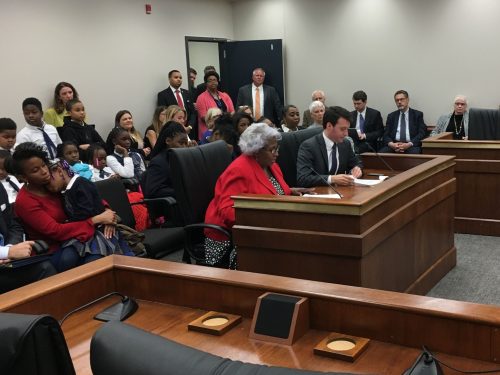This article was first published on palmettopromise.org
It’s a fact: South Carolina’s “Year of Education” won’t be complete without big, bold school choice.
Many good ideas to fix broken governance models, consolidate funding and administration, and support teachers are on the table. But a lot of these ideas are incremental reforms that will take years to come to fruition and show results.
Meanwhile, too many South Carolina children need a better shot at the opportunity only a great education can give them today. That’s exactly what we’re fighting to give them, by expanding their range of education choices, regardless of their zip code.
This week marked an important step forward as an Equal Opportunity Education Scholarship Account (ESA) bill—a cornerstone of our H.O.P.E. (Help Our Pupils Excel) Plan for education—received an initial subcommittee hearing in the South Carolina Senate.
Senators and media heard a wide range of expert testimony from educators, economists, policy experts, school principals, special needs parents, and teachers. Here are a few highlights:
- This hearing’s major focus: students. In fact, around 20 well-behaved youngsters from St. Martin de Porres Catholic School in Columbia joined their principal, Delores Gilliard, a retired 30-year veteran of public education in Richland District 1. According to Principal Gilliard, “Every child learns different and is different. We must empower our parents to decide what is best for their children.” We couldn’t agree more.
- We also heard from our resident Greenville-based policy expert Jonathan Butcher of The Heritage Foundation, who explained how ESAs are working in other states like Arizona, Florida, Tennessee, North Carolina, and Mississippi that have already created similar programs. He shared the satisfaction that parents in these states are enjoying with their ESAs and encouraged lawmakers that, “The future of learning is exciting… with an ESA, parents have the opportunity to become entrepreneurs and make the best decision for their child.” You can read more of his commentary on SC’s ESA bill here.
- On the financial side of things, Dr. Marty Leuken with EdChoice explained the data behind the overwhelmingly positive impact that private school choice programs have had across the country, “Educational choice is about a positive uplifting belief that any child can learn. Promoting educational choice is a sound investment.”
- As our own Palmetto Promise Senior Fellow, Dr. Oran Smith, testified: “There are facts and there are opinions. Over 100 studies have been done. The preponderance is school choice saves money and makes public schools better.” Be sure to check out our quick new synopsis of the results of over 100 of these rigorous empirical studies that demonstrate the positive impacts of private school choice for students and for public education.
- Candace Carroll, mother of a student with special needs, spoke about her struggle to find a school to meet her daughter’s challenges, “ESAs provide alternatives to the traditional one-size-fits-all approach. As a mother of an autistic child, I understand the difficulties. ESAs would allow for families like mine to have more options.”
- Michael Acquilano of the Catholic Diocese of Charleston shared how they have schools already established in many rural areas of South Carolina, and specifically how an ESA would allow them to take in more students, “ESAs would help us do even more for the poor and marginalized. We want to give them a chance to change their family tree.”
- Dan Nelson, principal of Bob Jones Academy in Greenville, spoke about their desire to expand their ability to serve students in rural areas of the state: “We want to share the load. An ESA would allow us to share the load and help our public school system.”
- Dr. Shaunette Parker—parent, educator, school board chair, and Executive Director MySCEducation,—summed it all up well: “What parents need to hear is that lawmakers understand that their children’s education is a demand for opportunity. An ESA bill represents an opportunity for lawmakers to let parents know that their children aren’t disposable.”
If you share our passion for helping every student in our state reach their full potential, please contact your state lawmakers now at their Columbia offices and ask them to use their voice and vote to make sure that critical school choice policies like Education Savings Accounts get an immediate hearing. The clock is running down and our students can’t wait. To find your lawmakers, simply enter your home address here.
And if you are reading this and may still not be sure exactly how ESAs work, this short video will tell you all you need to know!
Photo: Delores Gilliard, Principal of St. Martin de Porres Catholic School at SC Senate subcommittee hearing on April 4, 2019. Photo by Lawson Mansell.

